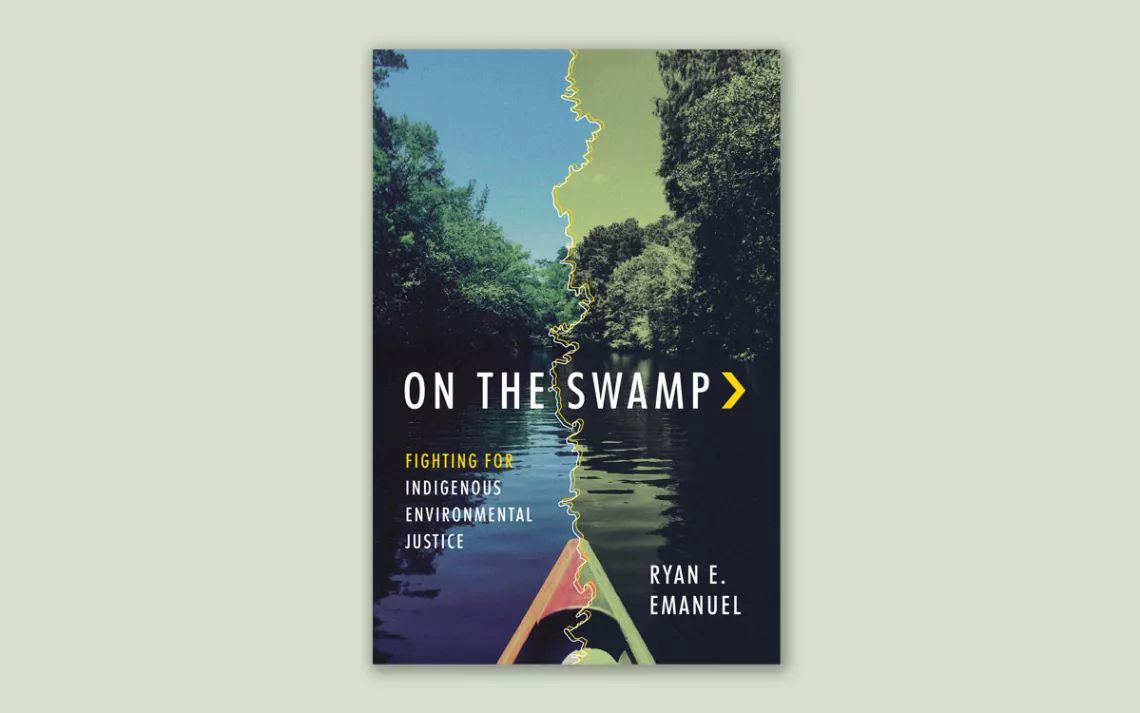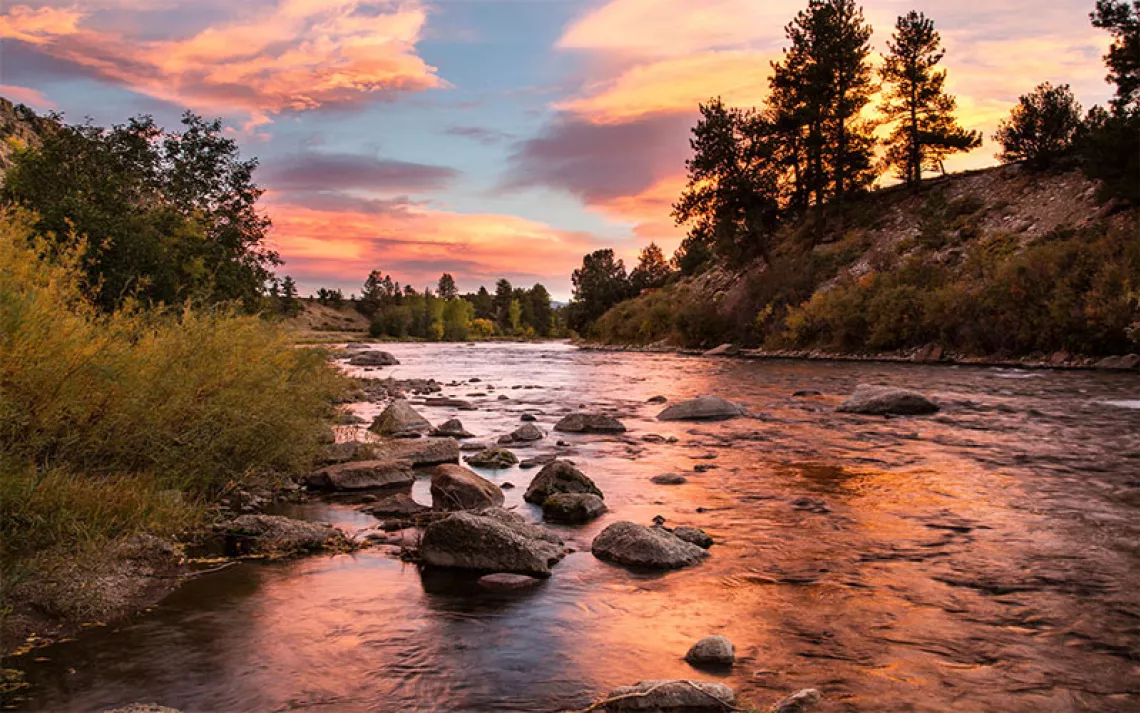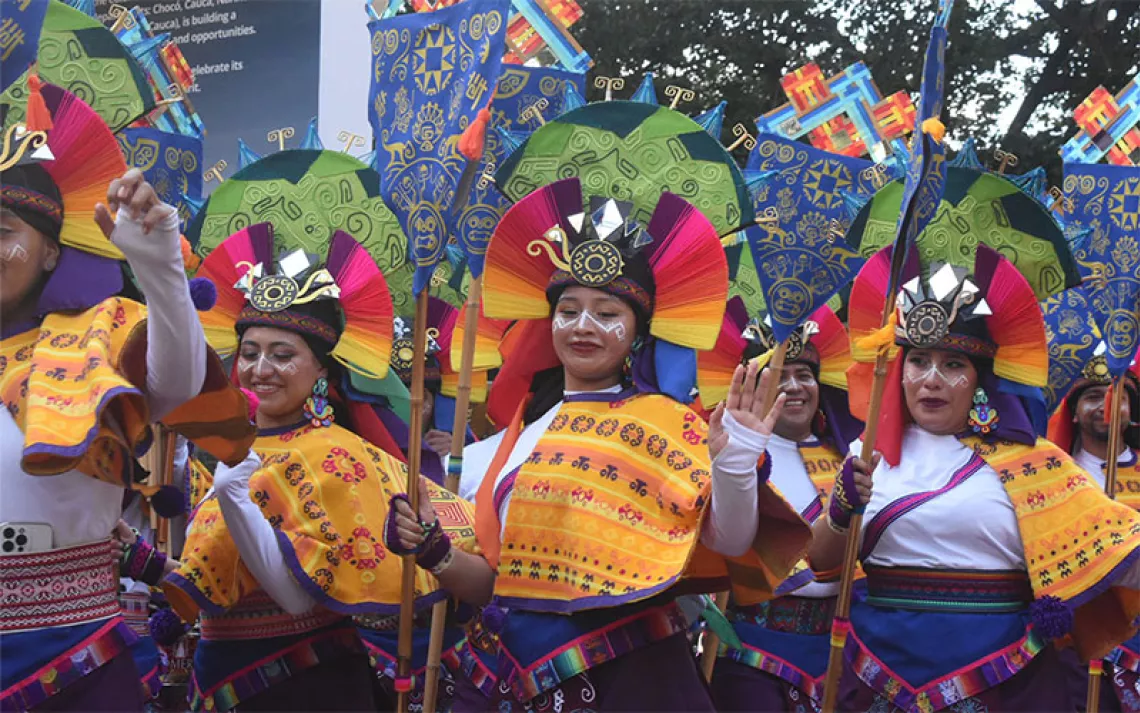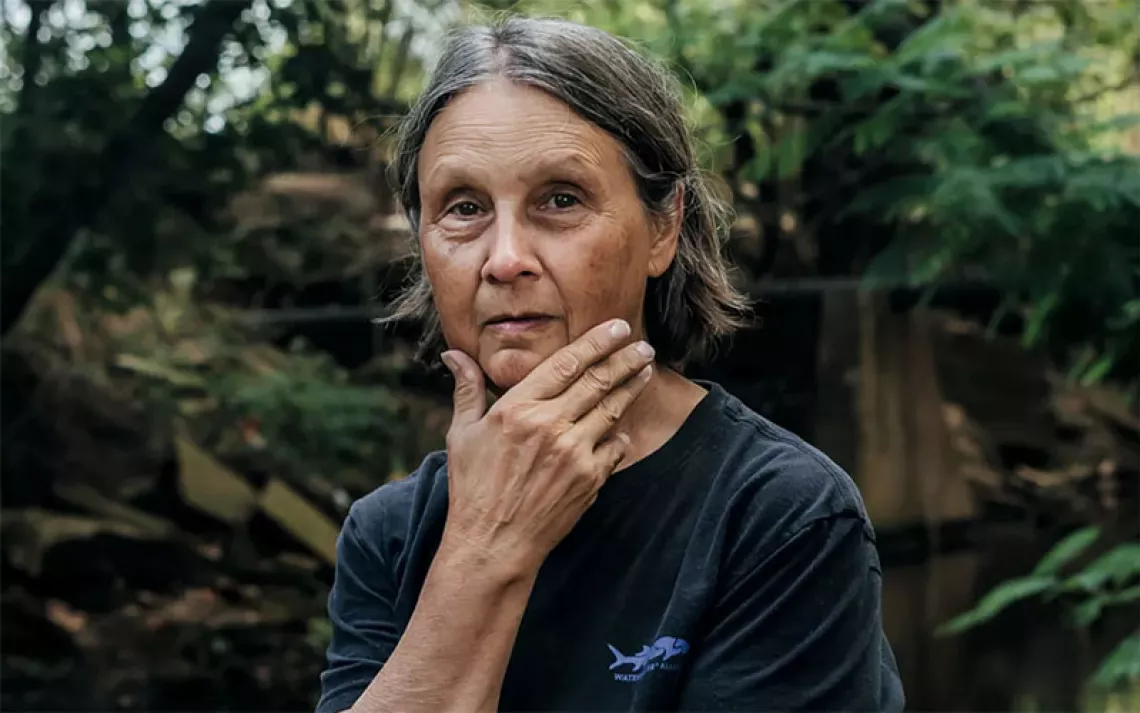Waterways, Wetlands, and Indigenous Justice
Ryan E. Emanuel's "On the Swamp" explores where wetlands and environmental justice collide

North Carolina has a significant Native American population. The state is also the birthplace of the modern environmental-justice movement. And yet very little has been written about how the two intertwine. Ryan E. Emanuel fills that gap in On the Swamp: Fighting for Indigenous Environmental Justice (University of North Carolina Press, 2024). Anchoring the narrative is Robeson County, where the twin environmental scourges of liquefied natural gas development and factory farming threaten waterways and wetlands that have been home to the Lumbee people for generations.
Emanuel, a member of the Lumbee Tribe and a hydrologist at Duke University, is uniquely positioned to tell this story. He observed the yearslong effort to run the Atlantic Coast Pipeline through Native wetlands and published analyses that showed the government’s environmental impact statement, supporting the pipeline, was flawed. He also risked his life to sample “reeking” water from a roadside ditch near an industrial livestock operation (the farmer threatened to shoot him). “The roadside ditch, the road, and possibly even the nearby house where the man lived had all been part of my ancestors’ territory,” Emanuel writes. These and other examples illuminate cyclical patterns of environmental injustice, rendered through deeply personal storytelling and vivid locality—down to the color of the water in seemingly every last rivulet in the county.
Ticking like a metronome throughout On the Swamp is Emanuel’s reminder that “those who have the least experience caring for our home have the loudest voices and make nearly all of the important decisions.” He offers a thought experiment to help the reader understand the scale of this imbalance: If the presence of humans in what is now the United States were shrunk down to a year, Europeans wouldn’t arrive until December 10. “The rest of the calendar belongs entirely to Indigenous peoples.”
 The Magazine of The Sierra Club
The Magazine of The Sierra Club



